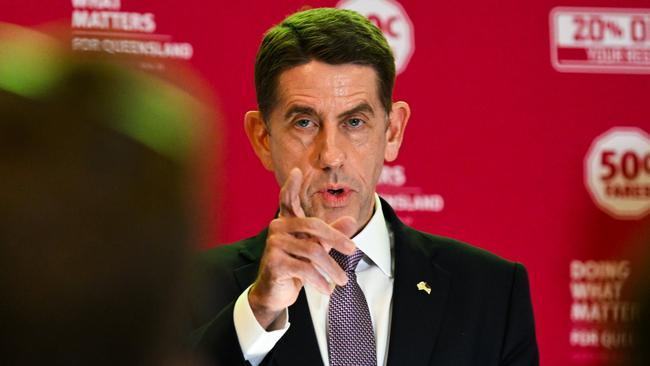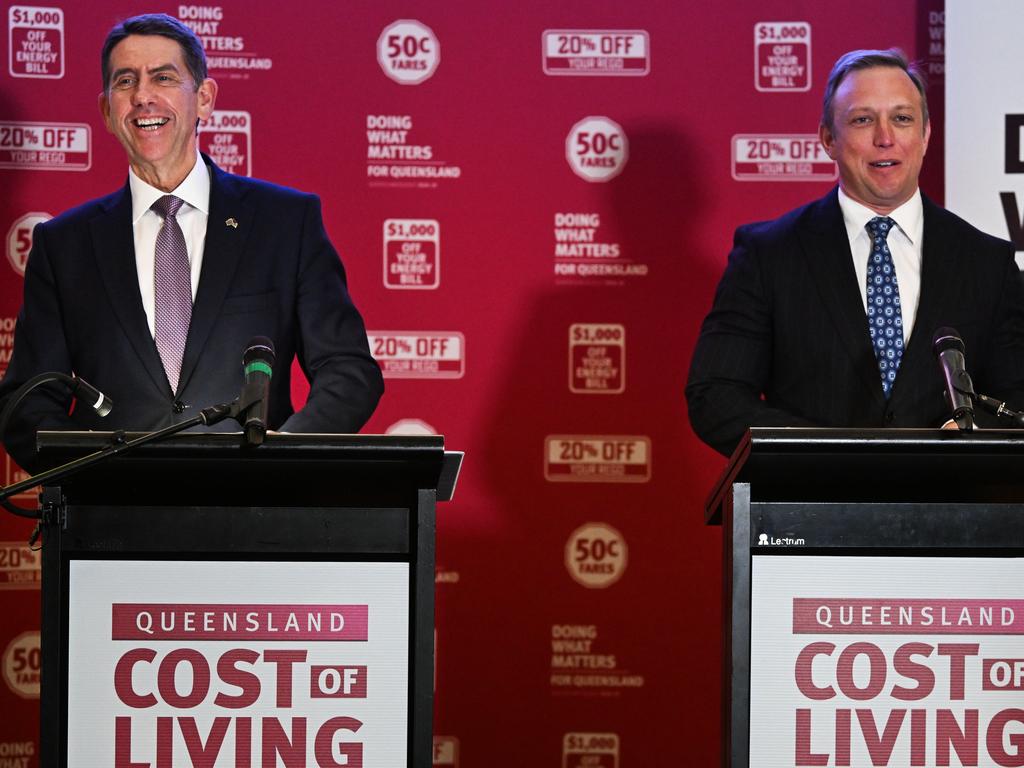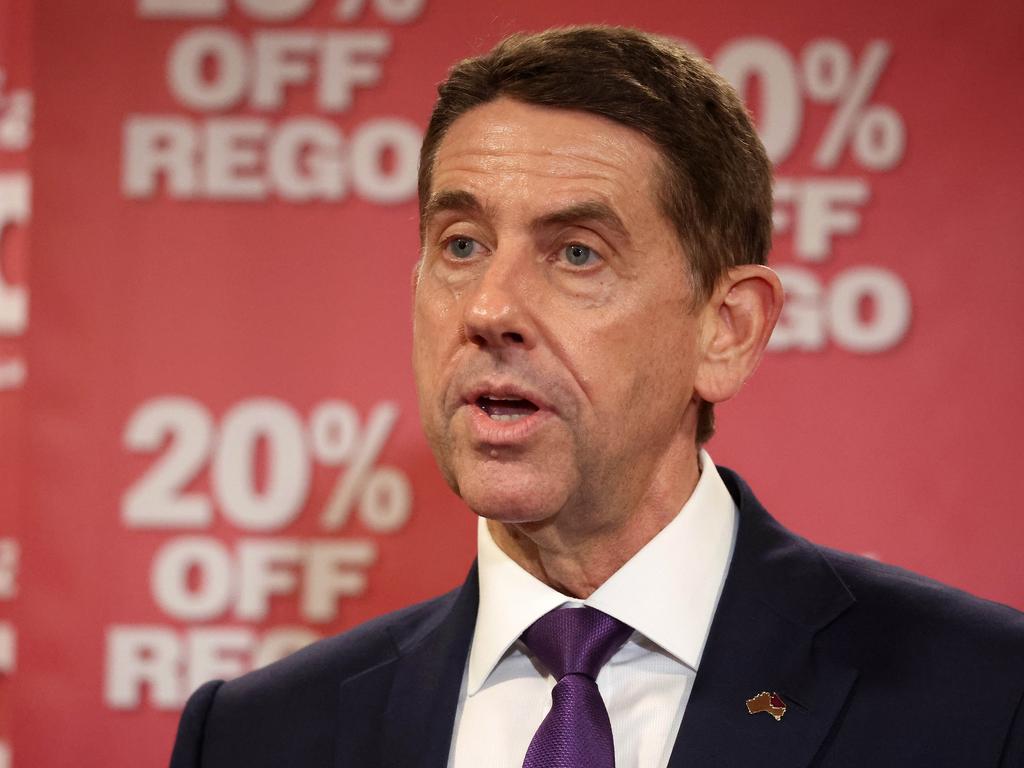Queensland Labor turns blind eye to soaring debt levels
Cameron Dick said ‘weak governments’ offered promise of lower taxes and debt.

Cameron Dick has refused to explain how he cut $17bn from Queensland’s soaring total debt forecasts in just two months.
Treasury figures released in April projected the state’s total debt would balloon to $188bn by mid-2028 but Tuesday’s budget revised the figure down to $172bn.
The Queensland Treasurer said the initial projection factored in budget submissions that he, and Premier Steven Miles, had rejected, but refused to say which projects were cut.
“The Premier and I said no; we said no to a lot of proposals that came before us,” Mr Dick said.
“Treasury does modelling and forecasting on the information available, including budget proposals that came forward. We’re sometimes criticised for not being transparent and accountable; we don’t believe that criticism and don’t think that’s right.”
After touting a government commitment to be “open all the way” on debt projections, Mr Dick refused to say which budget submissions were rejected.
Despite committing to debt reduction after it came to power nine years ago, the Labor government has now abandoned its plans to pay down what it owes, with total borrowings to increase by $63bn in the next four years.
In the same period, net debt – which excludes debt carried by state-owned companies – will skyrocket by $48bn to $59.83bn.
The debt-to-revenue ratio of 69.6 per cent for 2023-24 – a key measure for rating agencies – is expected to surge to 116.8 per cent by July 2028.
In his speech to parliament on Tuesday afternoon, Mr Dick said “weak governments” may offer promises of lower taxes and debt, “but they do so by delivering less services and cutting frontline jobs”.
Defending the debt blowout, Mr Dick said it was necessary to pay for cost-of-living handouts and to fund infrastructure and the clean energy transition.
“But the point I’m making is that, thanks to royalties, we are in a much better position to fund that new infrastructure now, when other states are contracting.”
A multibillion-dollar surge in coal royalty revenue in the past two years – reaped through a super profit tax on mining giants – has previously allowed the government to avoid taking on more debt and last year produced a record surplus.
With a drop in global prices, coal royalty revenue of $10.54bn this year will more than halve to $4.81bn by 2025-26.
S & P Global Ratings analyst Anthony Walker said the state’s debt levels would remain similar to domestic AA+ rated peers.
“Infrastructure spending will mean gross debt will continue to climb, after a temporary decline in 2023 as operating revenues spiked,” he said.
“Queensland’s economy, financial management, and comprehensive liquidity coverage support our ratings and the stable outlook.”







To join the conversation, please log in. Don't have an account? Register
Join the conversation, you are commenting as Logout